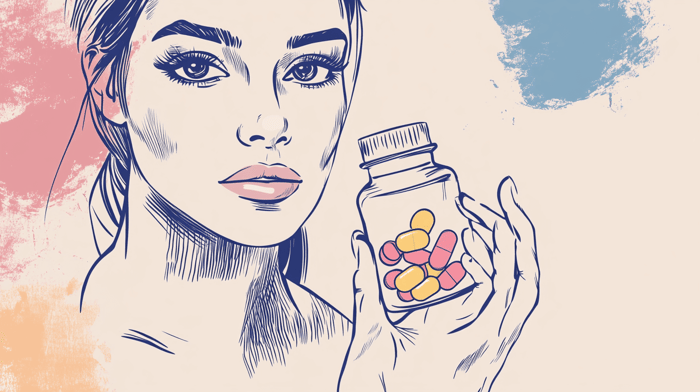Antibiotics are one of the greatest discoveries of modern science. But overuse or misuse of antibiotics can lead to serious health issues, including antibiotic toxicity and unpleasant side effects, such as yeast infections.
How can you protect yourself? The answer lies in practicing antibiotic stewardship.
Types of Antibiotics: Broad-Spectrum Vs. Narrow-Spectrum
There are two types of antibiotics:
- Broad-spectrum antibiotics combat a wide range of bacteria by attacking them en masse. Common examples include tetracyclines and quinolones, which are often prescribed for diseases like pneumonia or complicated urinary tract infections (UTIs).
- Narrow-spectrum antibiotics target a smaller group of bacteria, focusing on the specific bacteria causing an infection. Penicillin and erythromycin are examples of this type.
Antibiotics and Vaginal Yeast Infections
Broad-spectrum antibiotics attack all bacteria, both "good" and "bad." This can disrupt the natural balance of bacteria in the body, particularly in the vaginal microbiome. For women, this imbalance can lead to yeast infections.
For instance, broad-spectrum antibiotics may destroy beneficial Lactobacilli in the vagina, leaving room for Candida to thrive, resulting in uncomfortable yeast infections.
Preventing Yeast Infections Through Antibiotic Stewardship
To protect yourself from antibiotic-related yeast infections, practicing antibiotic stewardship is key. Here’s how:
- When your doctor prescribes antibiotics, ask for narrow-spectrum antibiotics. This reduces the risk of developing a yeast infection.
- Always complete the full course of antibiotics as prescribed, taking the correct dose for the full duration to prevent antibiotic resistance.
Understanding Antibiotic Toxicity
Misusing antibiotics can lead to antibiotic toxicity, where side effects persist even after you stop taking the medication. Symptoms include nausea, diarrhea, and skin rashes. In severe cases, it can lead to kidney damage or hearing loss.
If you experience any side effects after taking antibiotics, contact your healthcare provider right away. Never try to diagnose or treat these symptoms on your own.
The Importance of Antibiotic Stewardship
Antibiotic stewardship is about using antibiotics only when absolutely necessary. If you do need them, ensure you're prescribed the right type, follow the correct dosage, and complete your course of treatment.
Responsible antibiotic use helps maintain the balance of bacteria in your body, particularly in the vaginal microbiome, and reduces the risk of infections and other health complications.
Conclusion: Balancing the Fight Against Bacterial Infections
Optimal vaginal health relies on maintaining a healthy microbiome, and antibiotic stewardship is a critical part of that process. By using antibiotics responsibly, we can protect our health, prevent yeast infections, and help others do the same—especially women going through menopause, who may be more sensitive to vaginal issues.
Let’s prioritize our health by making informed decisions about antibiotics and spreading awareness about their proper use.











